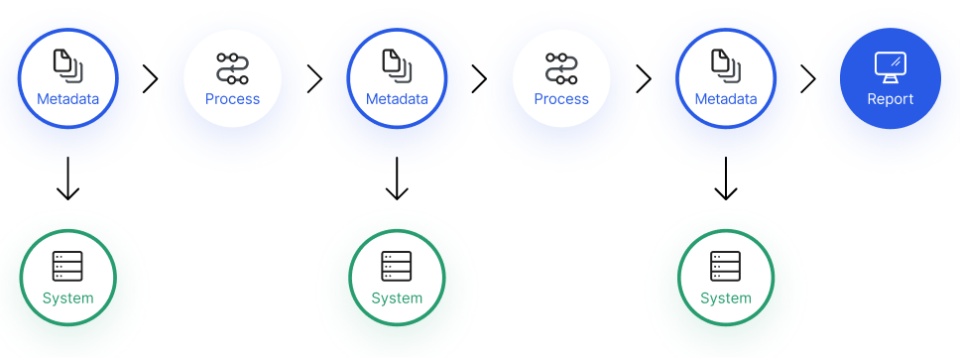In an era dominated by data-driven decision making, the accuracy and integrity of data are paramount. Understanding the journey of data, from its origin through various transformations to its final form, is essential for businesses that rely on accurate data for operational, strategic, and compliance purposes. This is where data lineage comes into play. So, what is data lineage, it is the process of tracing and documenting the life cycle of data as it travels through various systems and data transformations. It helps organizations ensure consistency, reliability, and trustworthiness of their data, making it an indispensable tool in the modern business landscape.
Find below some essential aspects that determine the crucial role of data lineage.
Improving data accuracy
Data lineage plays a critical role in enhancing the accuracy of data by providing a clear trail from source to destination. By mapping out the entire journey of data, organizations can identify and correct errors that may occur at any point in the data handling process. This ensures that the data used in decision-making is accurate and reliable, leading to better business outcomes and reduced risk of costly mistakes.
Simplifying compliance and auditing
For many industries, regulatory compliance is a major concern that requires meticulous record-keeping and data management. Data lineage provides a comprehensive view of data movements and transformations, which simplifies compliance with regulations such as GDPR, HIPAA, or CCPA. It also streamlines the auditing process, as auditors can easily verify the integrity and security of the data without needing to sift through complex databases manually.
Enhancing data management
Effective data management is crucial for any organization that handles large volumes of data. Data lineage helps by offering a clear understanding of how data flows through systems, which aids in maintaining the organization and structure of data assets. This visibility allows businesses to manage their data more effectively, plan for data integration projects, and optimize their data architectures to better suit their operational needs.
Facilitating troubleshooting and problem solving
When data issues arise, resolving them quickly is crucial to maintaining business continuity. Data lineage provides a roadmap that helps technical teams quickly pinpoint the source of data problems, whether they stem from incorrect data entry, issues in transformation logic, or other discrepancies along the data path. This accelerates problem-solving efforts and minimizes the downtime associated with data-related issues.
Supporting business transformations and migrations
As businesses evolve, they often need to undergo digital transformations or migrate data to new systems. Data lineage is invaluable during these transitions, providing insights into how data is interconnected and what impact changes might have on different parts of the system. This understanding ensures that migrations and transformations are smooth and that all data remains accurate and functional in its new environment.
To conclude
Data lineage is more than just a technical requirement. It is a strategic asset that enhances various facets of data management and utilization. As businesses continue to depend more heavily on accurate and reliable data, the role of data lineage in ensuring the quality and integrity of this data becomes increasingly critical.

